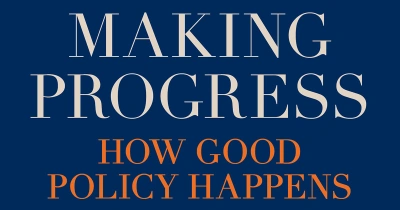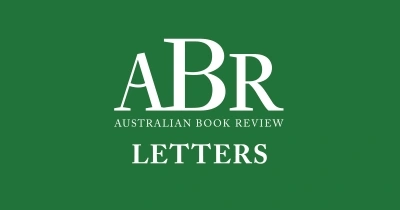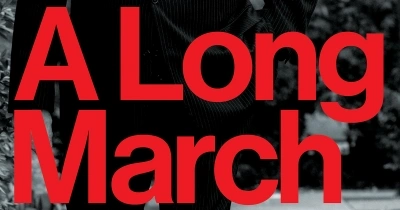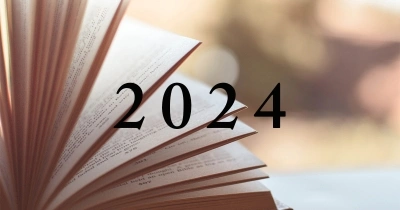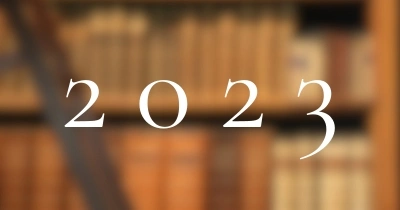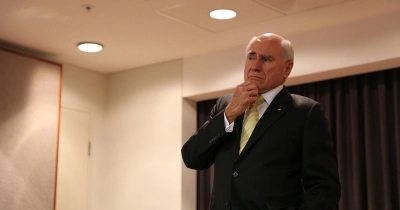Joel Deane
Making Progress: How good policy happens by Jenny Macklin with Joel Deane
Jenny Macklin was an unusual politician, so it should not surprise that hers is an unusual political memoir. Anyone looking to Making Progress for salacious tales from the internecine warfare of the Rudd-Gillard Government, in which Macklin was a senior minister, will be disappointed. Macklin is widely regarded as the most serious policy thinker among her generation of Labor politicians, and this account of her career, written in collaboration with Joel Deane, will only enhance that reputation. It is a book for policy wonks, and one that is perfectly timed to remind readers that, for all the sound and fury of the recent election campaign, government is a serious business.
... (read more)The Wakefield Companion
Dear Editor,
Bob Ellis’s disappointment with the new edition of The Wakefield Companion to South Australian History, reviewed by Frank Bongiorno (ABR, April 2025), is naturally disappointing to me as general editor. But in justice to the contributors, Aboriginal and non-Aboriginal, his claim that our work deals largely with ‘European items of interest and Eastern European [sic] artists’ is simply puzzling. This especially when the first eleven articles range from ‘Aboriginal −European Frontier Conflict’ through ‘Aboriginal Histories’ and ‘Aboriginal Land Rights’ (including a whole paragraph on native title) to ‘Aborigines Protection Board’.
... (read more)Let’s Tax Carbon: And other ideas for a better Australia by Ross Garnaut
Few books are greater than the sum of their parts – many are less. In the case of Ross Garnaut’s latest effort, the parts are greater than the sum. As a book, Let’s Tax Carbon: And other ideas for a better Australia succeeds and fails. It succeeds as a field guide to the past, present, and future of the Australian economy’s three big policy problems: transitioning to a net-zero carbon economy; reversing social and economic inequity; and creating new industries that secure the nation’s prosperity. But it fails as a work of non-fiction.
... (read more)Criticisms first. Kim Carr’s insightful yet evasive memoir, A Long March, reads more like a short march. As a key left factional leader in the Australian Labor Party for the best part of forty years, the former Victorian senator squibs on details. He doesn’t explain the subterranean workings of the ALP; doesn’t fess up on the genesis of his feuds with the likes of Julia Gillard, Kim Beazley, Greg Combet, Anthony Albanese, and John Cain; doesn’t come clean on the part he played in the fall of the Gillard government in 2013; and doesn’t take his share of responsibility for the Rudd-Gillard-Rudd governments’ failure to implement his laudable industry policies. This book should be more revealing, much longer, and much more reflective.
... (read more)This week on The ABR Podcast, Joel Deane considers the black and white politics of opposition leader Peter Dutton. Deane explains that Dutton considers these politics a ‘police trait’ that he developed while in the force, and one that now serves him well in politics, especially when making necessary snap judgements. But will this style endear him to the electorate in the next election campaign, likely fought against Prime Minister Anthony Albanese? Joel Deane is a speechwriter, novelist and poet. Listen to Joel Deane’s ‘The Manichaean Candidate: Peter Dutton’s black and white politics’, published in the September issue of ABR.
... (read more)Bill Hayden, the first Queensland policeman to lead a federal political party, wrote of his experiences as a constable – the violence, the squalor, the tragedy – in his autobiography, Hayden (Angus & Robertson, 1996), and concluded: ‘All of these led me to feel a great anger at the injustices some people had to bear.’ At one point, the former governor-general noted that his ‘humanist’ reaction to injustice reflected his background as the son of a father who was an illegal immigrant and a mother who suffered domestic abuse.
... (read more)What the authors of these three wildly different books share is a gift for creating through language a kind of intimacy of presence, as though they were in the room with you. Emily Wilson’s much-awaited translation of The Iliad (W.W. Norton & Company) is a gorgeous, hefty hardback with substantial authorial commentary that manages to be both scholarly and engaging. The poem is translated into effortless-looking blank verse that reads like music. The Running Grave (Sphere) by Robert Galbraith (aka J.K. Rowling), the seventh novel in the Cormoran Strike crime series and one of the best so far, features Rowling’s gift for the creation of memorable characters and a cracking plot about a toxic religious cult. Charlotte Wood’s Stone Yard Devotional (Allen & Unwin, reviewed in this issue of ABR) lingers in the reader’s mind, with the haunting grammar of its title, the restrained artistry of its structure, and the elusive way that it explores modes of memory, grief, and regret.
... (read more)Why did Australia vote against the Voice referendum?
... (read more)Early in Joel Deane’s third novel, the point of view shifts from the first to the third person as the narrator, Patrick ‘Pin’ Pinnock, reflects on a moment in boyhood, standing atop a diving board at night.
... (read more)

